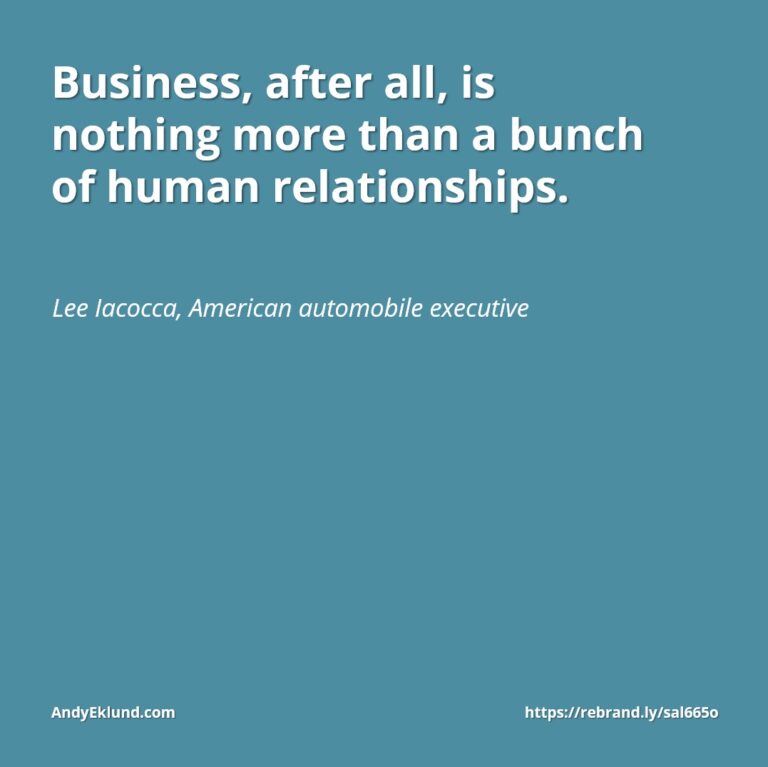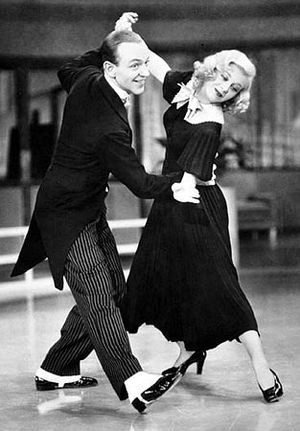Every success – and problem – between a client and its agency can be directly traced to its relationship, specifically at the point when it began and the expectations set between the two parties.
Relationships of course are based on trust, and a significant portion of trust is established and built on one’s ability to communicate to and with each other.
For people working in the marketing or communications industries, this makes for an ironic topic, particularly when things go wrong.
"The Expectations Agreement"
I experienced this first-hand in 1992, when I moved from the agency side (at Weber Shandwick) to the client side (at MasterCard).
It was more than just a new person inside the client organization getting to know its agency and vice versa. In fact, it was downright sticky. Less than three short weeks, I went from being the agency account director on the MasterCard account to leading internally the same business I used to run externally … and with the same team of people at both client and agency. In short, neither side trusted me, and frankly, I didn’t trust myself for nearly six months into the new job.
Out of frustration, I turned to my mentor at the time. (She still is, in fact. Hi Susan G!) After some soul-searching, she suggested I stop for a moment and ask myself what I was expecting: from the client, from the agency and from the relationship between client and agency overall.
It wasn’t the most creatively titled document – “The Expectations Agreement” – but still, it became a helpful starting point for me to better manage both sides for maximum results.
What goes around, comes around.
Last month, I was helping one of my clients in Asia begin a new relationship with their social marketing agency. Like two new dance partners, the two parties – senior people from both the company and its agency – were off to a rocky beginning at the start of a three-day planning meeting that I’d been hired to facilitate.
I could see the same problems bubble up, so much so that by the start of Day Three, I brought in my original document and started the day with a discussion and debate about setting right the expectations between the two parties from the start. To be specific:
- I had the client side (just three of them) articulate exactly what they expected from their new agency.
- In a separate room, I had the agency (seven of them) articulate exactly what they expected from their new client.
- After each party had its list, they presented their expectations to the other partner. No one was allowed to say anything until both parties finished.
- Afterward, we talked about …
- What was realistic vs wasn’t realistic
- What were more important vs less important
- How to bring up problems and solutions
- How to treat each other
As it had been for me, the client and its agency found it invaluable to slow for a moment to talk about this new and important relationship, so that virtually any discussion afterward would be built on these principles and values.
Here is a simplified version of their discussion on that conversation. The fact that it was written for clients and agencies shouldn’t dissuade you from having an open conversation with whatever new partner you have.
Laying out your expectations from the beginning, including the values and expectations you’ll both bring to this relationship, will undoubtedly help all parties creating a lasting, trusting relationship.
What the Client Should Expect From Its Agency
Honest counsel
You should expect a fresh, truthful and objective point-of-view. You should expect your agency team to give you their honest opinions and counsel. For example, if they consider an action you’re about to undertake may be risky or inappropriate, it is their responsibility to bring it up for a respectful discussion.
Quality
Your agency should have the highest standards for quality because their reputation depends on it, if not their reputation with all of its clients. If ever you feel you aren’t receiving top quality, let them know immediately, by being explicit, constructive and candid.
Stimulating Discussion
Your agency should challenge your assumptions and recommendations, and you should challenge theirs. The discussions are honest, but never personal. They should lead to a strong, collaborative working relationship and to the best results.
Confidentiality
Your agency helps you in highly sensitive situations. All agency employees should sign a stringent confidentiality agreement. They must understand the obligations imposed by becoming “insiders.”
Responsiveness
As a client of this agency, you deserve their attention, ongoing interest and responsiveness against a fair and just budget. On critical matters, this means doing all that is humanly possible to assist you. On less time-sensitive assignments, this means reaching a clear understanding on the real deadlines. In either situation, both parties should listen carefully, meet those deadlines, and let the other know ASAP when they can’t be met. Their aim should be to return your phone calls and e-mails as soon as possible, and always within the same day they’re received. For appropriate staff members, you should have mobile telephone numbers and a willingness to take calls outside of the office.
Budget Stewardship
They should be as responsible for your budget as you are, using it as efficiently and effectively as possible. You should expect them to match assignments with their account people with the most appropriate rates for that assignment. They should provide estimates in advance. Because assignments sometimes change, they should let you know as soon as possible if the budget may be exceeded. Or, you should expect them to provide recommendations on how best to use the remaining budget to still achieve your goals.
Senior Counsel When and If You Need it
A good agency should have a large pool of experienced practitioners – not just full-time staff, but those with whom they’ve worked as consultants or within their professional network. You should have access to those people, their experiences and their knowledge for a reasonable fee. You should expect your agency to draw upon those resources on your behalf, as needed.
Timeliness
Two words: no surprises. You should keep your most senior account leader fully up to speed, particularly on upcoming or potential issues. Your agency should keep you up-to-date about assignments, budgets and deadlines, either in status updates or regular meetings. Neither side should believe in meetings for meeting’s sake, but for significant assignments, both parties should encourage quarterly meetings with the entire team. Used productively, such meetings go a long way toward keeping each other informed and up-to-date.
An Informed Team
Expect them to ask lots of good questions. It’s their responsibility to get to know your industry, its trends and its media.
Integrity
While they are willing to carry out your assignments, they should never violate their professional or personal code of ethics.
Fresh Ideas
You should expect their best ideas, continually. You should help make their creative sessions most productive by expressing the decisive outcome that the idea should achieve, give them what you believe are the success criteria to judge the ideas, and help them know or understand the areas or issues which should be addressed in the brainstorm. At the same time, these sessions are meant to break out of your existing circle of plans and programs. That means you should expect something to challenge you and your thinking, and more often than not, you should collaborate to find ways to turn these problems into opportunities, if not tactics.
What the Agency Should Expect from Its Client
Lead Time
You understand that it’s not always possible to get advance notice on certain projects. But you can provide better counsel and execution if given enough time to consider and prepare. Hearing about a major issue or announcement at the last minute, or after the attorneys have given you their (communications) advice, puts everyone at a disadvantage.
Reasonable Budget
You are not a non-profit organization. Your work has value, and thus, a reasonable cost. Your point-of-view is not to take all of the client’s budget, but to help them be so successful, they make more money.
Candor
You should expect the complete picture, including both the good news and the “warts.” You juggle a difficult role: you must be both insiders and outsiders to provide the best, objective recommendation.
Clarity
You should expect clear direction. Again, you understand that’s not always possible. But in lieu of a confident, thought-out strategy, you still need a few choice items: a clear objective, an agreement on the desired results, the most current information available (or a reasonable amount of leeway to contact others to help get information or understand it better), and a suitable budget.
Access
When necessary, you need access to key people, to relevant and appropriate information, to top management in issues and crises, and to people generally within the client organization who can help you best understand the current situation. Certainly the materials, plans, research reports and other documents you expect from the client will be helpful. But, they are not a substitute for occasional dialogues with the “right people” on direction, developments and key issues. This can be done judiciously and cost effectively, but on certain kinds of assignments implemented on the client’s behalf, it is mandatory, not a chance to build your reputation internally.
Sponsorship Within Client
You are an extension of the internal team. Others in the organization should know who you are, and more so, know that you have your client’s support. This is more than just getting your phone calls returned or emails answered. It helps get speedier approvals, better decisions, and generally makes for a more productive relationship with everyone, not just the immediate client team.
Honest Feedback
You should know how you’re doing. There should be no misunderstanding when your efforts are of quality and “on the mark” – or, at the same time, when you are not living up to the client’s expectations. You should also speak up in constructive ways when you don’t think things are going as well as they should. The problem is never the other side’s.
Integrity
You should never be put into situations that involve unethical behavior. It hurts not only your professional reputation, but you as an individual as well.
What We Should Expect From Each Other
Trust and Respect, Fairness
We value the relationship we are beginning, and want it to be a mutually satisfying agreement, regardless of whether it’s short- or long-term.
Each party deserves the other’s best efforts, ongoing top-of-mind attention, honesty and respect.
We want to be treated as a partner and an ally so that all of us can do our best work.
It’s unlikely either of us is perfect, will never make mistakes, or always meet the other’s expectations.
The important thing is to treat each other as colleagues who communicate honestly as we both work together toward our common goals.
Here’s another article in a similar vein from the Harvard Business Review: How to Build Business Relationships. (You might need a subscription to read.)
Have a forgotten anything in these expectations between agencies and clients? Would you add or amend it in any way? Please add your thoughts and comments below.



1 Comment
Sensible information, thank you!